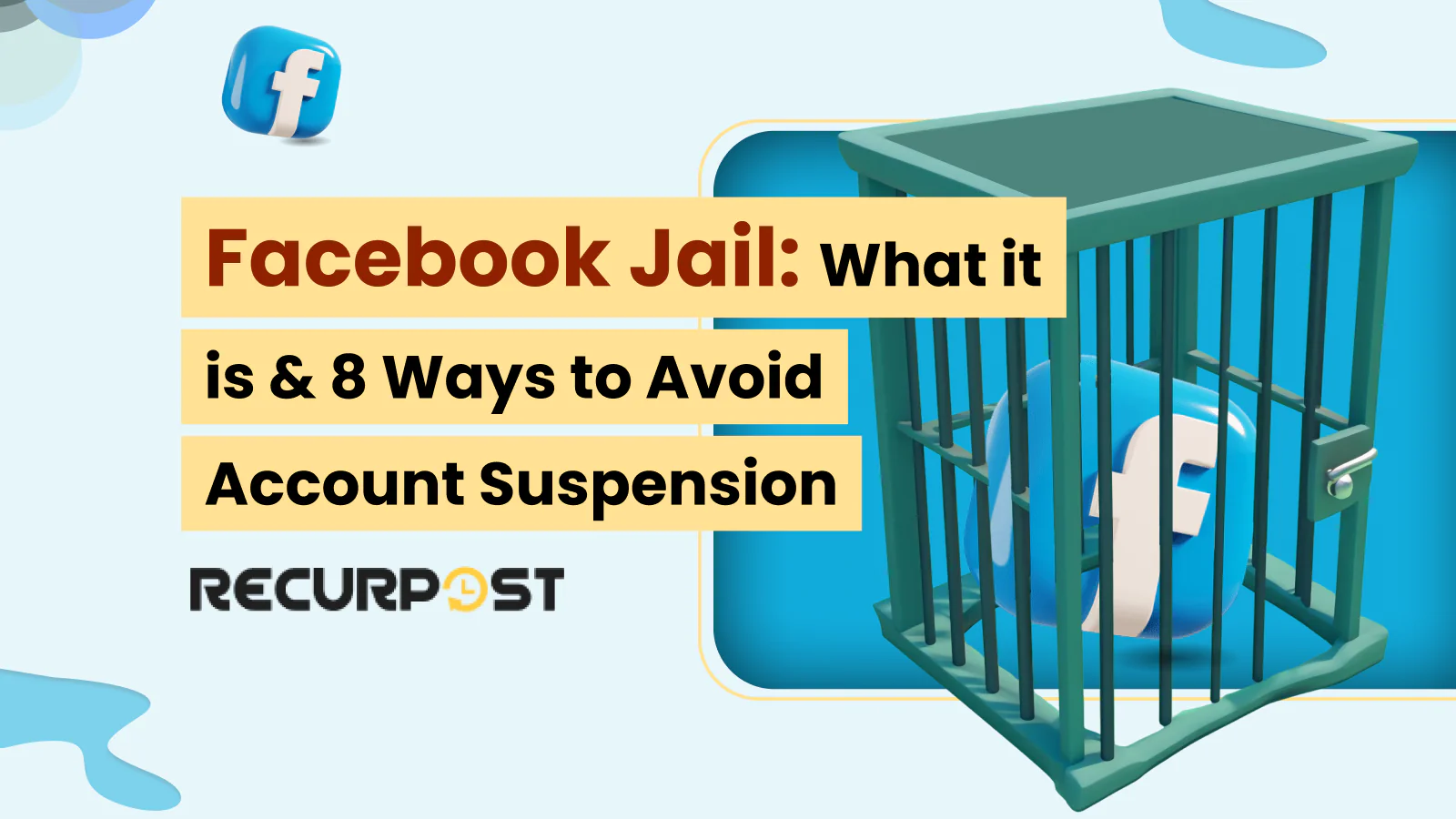Have you ever heard someone comment, “My account is in Facebook jail!”
Well, if you haven’t, don’t worry. It doesn’t happen quite often, but it happens.
Before you picture iron bars, note this is not a physical jail. Facebook uses account restrictions for users and pages that violate community standards and places them in a virtual jail.
TL;DR
- Facebook jail = temporary or permanent account suspension for breaking Community Standards: a few hours to 21+ days, or account deletion.
- Common triggers: posting nudity, hate speech, spammy or misleading posts, excessive tagging or friend requests, and unsafe payment methods.
- Warning signs: alert messages that block actions like liking, posting, or messaging.
- To recover: file an appeal for minor blocks; for severe bans, a new account might be the only option.
- Prevention: space out posts, post original content, limit tagging, avoid bulk friend requests/messages, control liking/commenting speed, block problem users, use safe payment info, shorten repeated links.
What is Facebook Jail?
Facebook jail refers to an account restriction imposed when users violate Facebook’s community standards. For businesses using the platform to promote services, these restrictions can block page or profile access. Even minor violations can cause account suspension or closure.
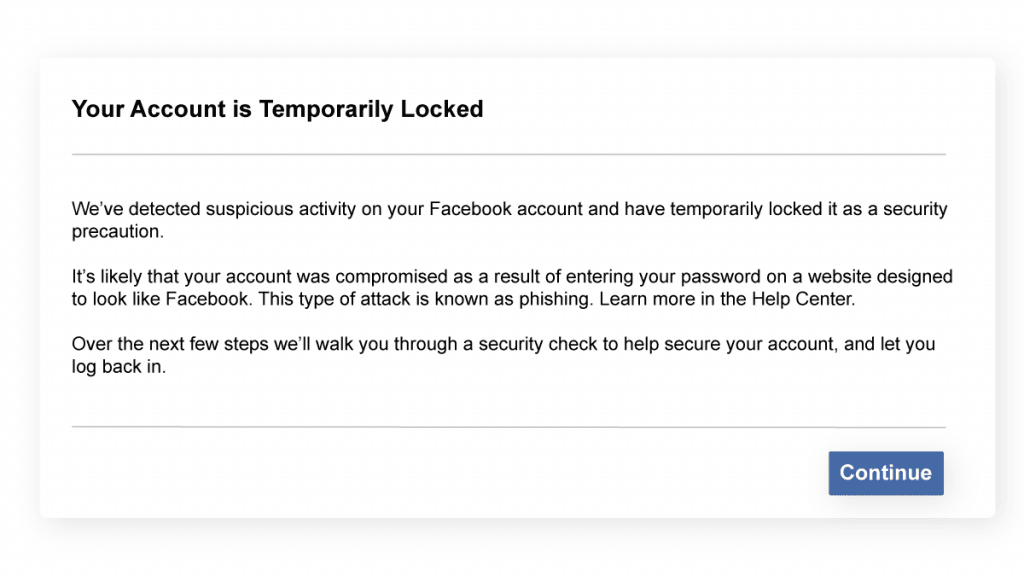
Penalties include posting restriction bans (lasting hours, 3 days, 6 days, or 7 days) to complete profile suspension, or page removal. Restrictions may last 24 hours to 21 days.
There are mainly two types of blocking in Facebook jail:
- Temporary blocking: Facebook applies a time-limited restriction on your account. After the ban period ends, you can resume normal activity. The maximum ban duration is 21 days.
- Permanent blocking: This is when your account faces permanent deletion, making account recovery impossible. Access to the personal account is revoked permanently.
Why does Facebook put people in jail?
On September 17, 2019, Facebook announced extra measures to combat hate speech and extremism across its platform. These account restrictions preserve privacy, safety, and community standards compliance for the Facebook community.
How do you know if you are in Facebook jail?
No third-party app detects Facebook jail. Facebook notifies users at login when restriction notifications apply. If account restrictions occur, you’ll suddenly lose abilities like liking posts, commenting, or uploading content.
Facebook jail notifications appear as alert messages when you attempt restricted actions. These warnings display texts like “You’re temporarily blocked” or “You’re temporarily restricted” with violation explanation and duration indication. The block notification may also include a button to review Facebook’s Community Standards.
Facebook’s policies have become stricter. The platform removes accounts that harm the community, even for minor community standards violations.
Any term violation can cause account suspension. Follow proper steps for account recovery. If standard recovery fails, submit an appeal option to Facebook support or seek help from the Facebook community.
What will put you in Facebook jail: Top Reasons for being put in Facebook jail
Facebook restricts accounts for several reasons, including:
- Sharing nudity/provocative content leads to account restriction. Facebook has strict community guidelines for compliance against such content.
- Expressing hate speech, threats, or attacks on any user, page, or group causes Facebook bans. Facebook’s community standards remove accounts spreading hatred.
- Spam activities with posts or messages also trigger Facebook jail.
- Fake, spammy, or plagiarized content leads to community standards violations. Original content creation keeps Facebook posts compliant and authentic.
- Even with many followers, profile suspension occurs when users violate rules. Account suspension applies regardless of popularity.
- Excessive group posting leads to a group posting ban or temporary blocking. Manage posting schedule across Facebook groups to avoid account lockout.
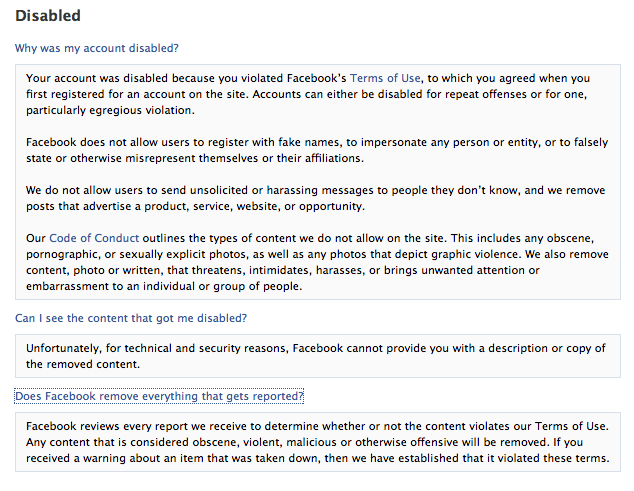
Reasons for being put in Facebook jail, by RecurPost as a social media scheduling tool:
- Review the terms of service: many skip reading Facebook rules and regulations. When creating a page or group, check terms to prevent violations.
- Suspicious payments: register legitimate payment methods for Facebook ads. Fraudulent or inconsistent payments trigger restriction details or ad account suspension.
Join 5,000+ creators avoiding Facebook Jail. Get weekly safety tips.
What happens when you get banned from Facebook?
If Facebook restricts your account, you’re among many affected by new security measures. Facebook jail usually ends after the ban duration (unless repeated community standards violations occur). Once restrictions lift, normal profile access resumes, though temporary restrictions may include a 7-day probation period.
How long is Facebook jail?
Facebook applies two types of account restrictions: temporary blocking and permanent blocking.
Temporary blocking
Temporary blocking restricts profile access for a set period, usually hours or days. The maximum 30-day Facebook ban ends with full account recovery.
Permanent blocking
Permanent blocking makes account recovery nearly impossible. For businesses and marketers who invested time in Facebook marketing, permanent deletion means a complete loss of assets.
How to put someone into Facebook jail?
According to Facebook’s CEO, posting “objectionable content” triggers account restrictions. This category covers four main areas: hate speech, graphic violence, adult nudity, and sexual activity.
How to come out of Facebook jail when you get banned?
For minor temporary restrictions, users can file an appeal submission for a Facebook review. Facebook support sends an email with the appeal option outcome, either acceptance or rejection. Many restore account access through this process.
Step 1: Check Your Support Inbox
- Go to your Facebook Support Inbox: https://www.facebook.com/support
- Review the reason for the restriction notifications.
- Understand which community standards violation occurred.
Step 2: Appeal the Decision (If Applicable)
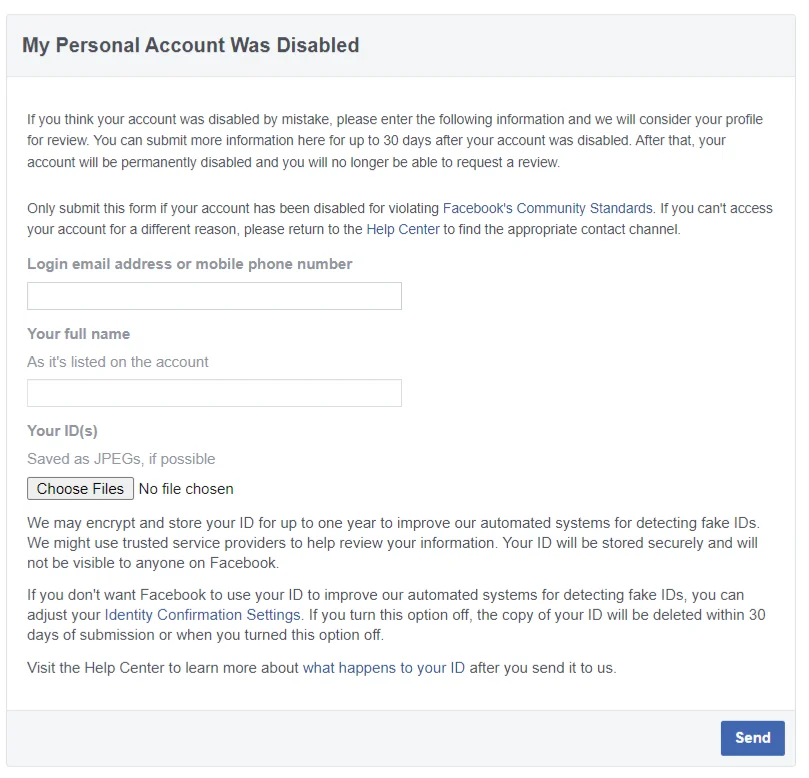
- If the restriction is minor (temporary block or warning), Facebook often gives an option to appeal.
- Click “Disagree with Decision” or “Request Review”.
- Write a clear, professional explanation—avoid emotional or aggressive language.
- Mention if the action was accidental or misunderstood (e.g., automation mistakenly flagged you).
Step 3: Wait for Facebook’s Review
- Facebook usually responds within 24–72 hours.
- You will receive an update via your Support Inbox or email.
- If successful, the ban may be lifted early. If rejected, you’ll have to wait out the restriction period.
Step 4: Prepare for the Worst (Severe Bans)
If your account or page is permanently disabled:
- Visit the Facebook Account Appeal Form
- For business assets, go to Meta Business Help Center and file a request with your Business Manager ID.
- If the appeal is denied and you’re unable to recover access:
- Backup your data (if you still can).
- Consider creating a new account/page, but avoid linking the same phone number, email, or payment info right away.
8 ways to avoid Facebook jail
1. Set a frequency of sharing posts on Facebook
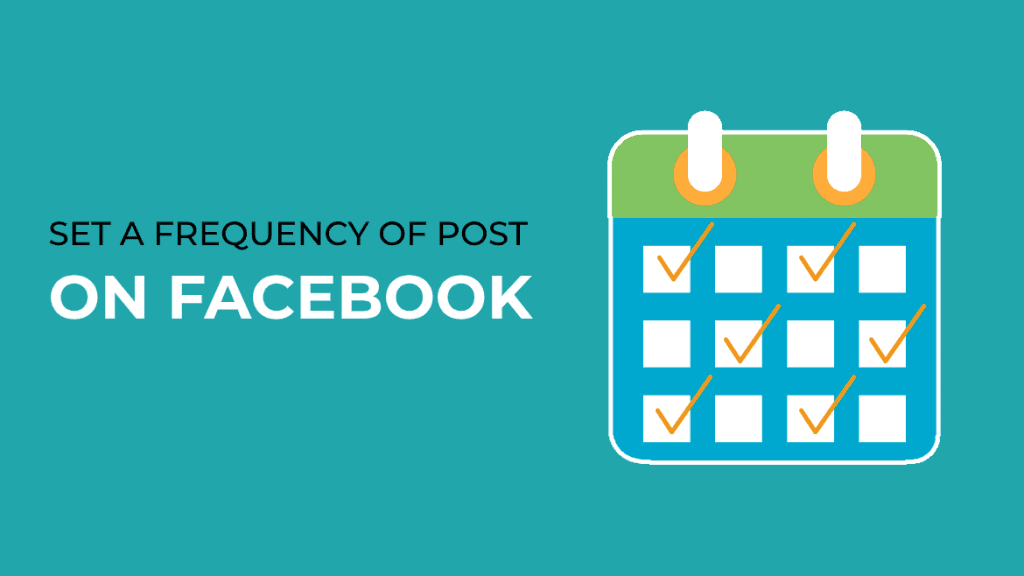
Posting identical content across multiple Facebook profiles, Facebook groups, or pages triggers posting restrictions. Space out posts on different accounts to avoid temporary blocking. Though time-consuming, this spacing prevents account suspension.
Schedule posts in advance with a social media scheduling tool for proper posting schedule management without manual effort.
2. Don’t use plagiarized content
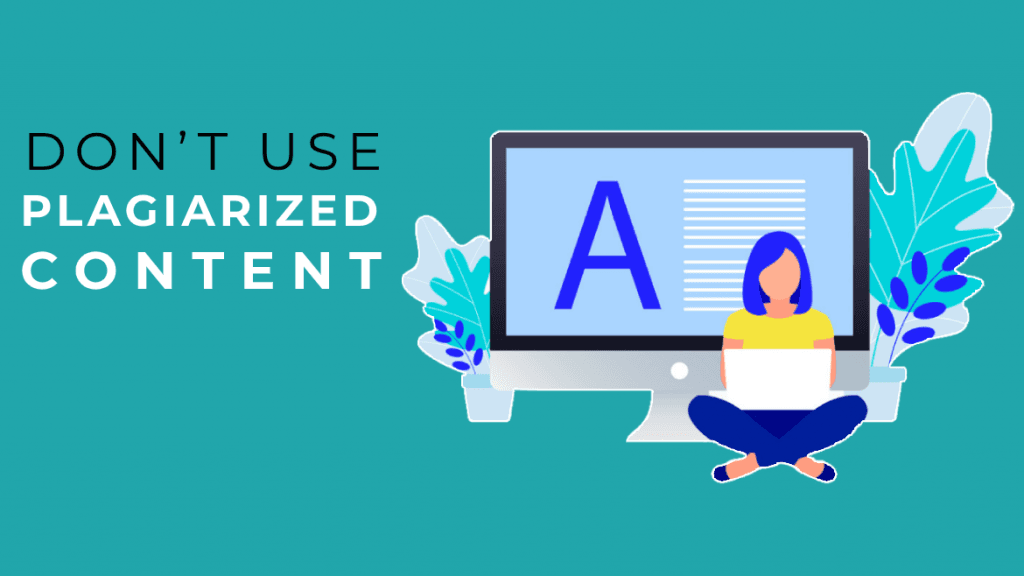
Facebook penalizes copied content and rewards original content creation that adds value to the community. Repeated plagiarized content leads to spam activity reports. Avoid random images from search engines. Original content makes your profile authentic.
When using stock images, confirm copyright clearance. Originality applies to all content types: images, videos, text, and links.
3. Avoid unnecessary tagging
Random tagging in posts increases the risk of restriction notifications. This harms your reputation and leads to Facebook jail. Similarly, bulk friend requests trigger suspicious activities and account penalties.
Unknown users often reject friend requests and mark your account as spam. Adding to groups without consent raises reports and leads to profile suspension.
4. Stay away from spamming activities
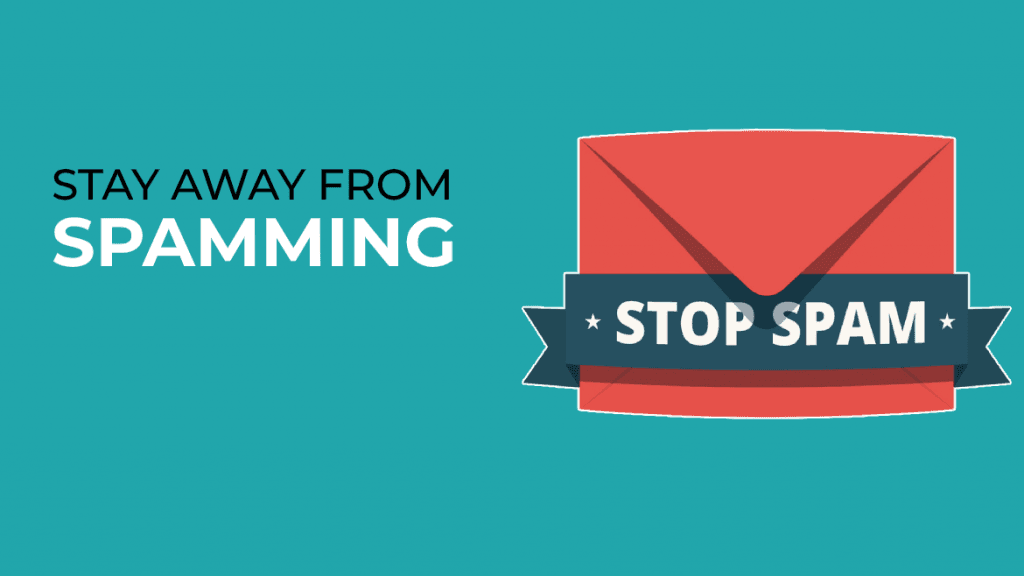
Several spam activities trigger Facebook restrictions. Avoid these actions to stay clear of community standards violations:
- Send friend requests only to people you know or to mutual friends. Too many unanswered requests mark your account as spam.
- Avoid spammy messages in bulk. Facebook’s platform expects ethical use of Messenger. Repeated promotions mark messages as spam and trigger restriction details.
- Promoting your business on other pages or groups with spam activities leads to Facebook jail. Use group posting management to avoid block notification or reports.
5. Block people who can be harmful to you
Competitors or others may report every post without reason. Prevent attacks by using the block option or the report feature before issues arise.
If competitors or other users might report your content, block or report them. They lose profile visibility to your posts, stopping false reports. If your posts are removed, contact Facebook support about the situation.
6. Watch the speed of liking and commenting
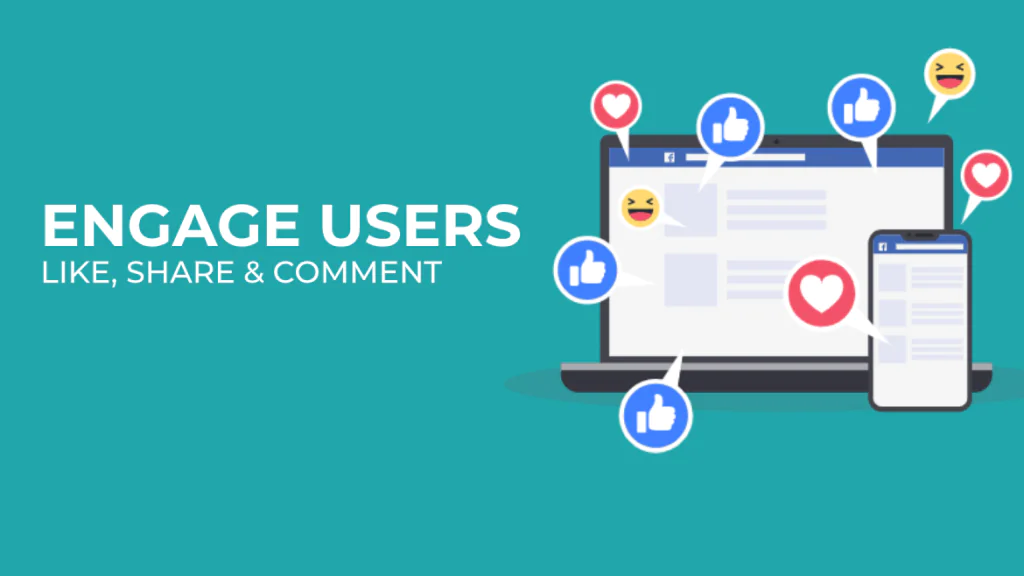
Bots mass-like and comment on posts, mimicking real users. Facebook restricts such interaction speed control. Serial liking/commenting triggers temporary restrictions. Control activity limitation to avoid spam detection.
Controlled interaction rates assist Facebook’s platform in traffic checks. Too many rapid activities at once trigger restriction notifications and account lockout.
7. Limit the number of posts per day
Balance post quality and quantity. Experts recommend 5–6 Facebook posts per day for Facebook reach. Avoid excessive posting to prevent a posting ban.
Posts should drive website traffic and brand awareness. Overloading followers with excessive posting causes spam reports and account restrictions.
8. Shorten your links
Posting identical links across multiple accounts triggers restriction notifications. Use link shortening in posts and bio to save space, reduce spammy looks, and avoid posting restrictions.
Use free tools like wp.me, bit.ly, or goo.gl for link shortening.
The bottom line
Avoid Facebook jail by using the platform under community guidelines compliance. When using Facebook groups for business, review terms and rules to prevent community standards violations.
Space posts evenly during the day, limit daily Facebook posts to 5–6, avoid spam activities, use link shortening, and manage posting schedule with a social media tool to save effort.
Try the 14-day free trial of RecurPost and start managing your Facebook accounts and other social media profiles with proper account management.
FAQs on Facebook Jail
1. What is the meaning of Facebook jail?
“Facebook Jail” is not a physical place but a term used to describe a temporary suspension or restriction of a Facebook account. When an account is in Facebook Jail, the user typically experiences certain limitations and restrictions on their account, which can vary based on the nature of the violation and the severity of the offense.
Here are some of the examples of Facebook jails: Restricted posting, Limited Interaction, Hidden Posts, No Public Profile visibility, Messenger Limitations, and Appeal Process.
2. How to get out of Facebook jail?
There is no definite way to escape the Facebook jail once you fall into it. But there are a few methods to work around it. Here are the options you have once you get trapped:
– Wait it out and do nothing – if there has been a minor violation from your end, it is likely that Facebook will lift the ban in a day. So, you should just wait it out.
– Submit an appeal – when you get trapped in the Facebook jail, you will receive a notification about it with a suggestion to fix it. So, in case you are given a chance to send a request for lifting the ban, do so.
– Create a new account- if nothing else works out, you always have the option of creating a new account.
3. How to avoid Facebook jail?
Getting into Facebook jail is not a pleasant experience. Here are a few things to keep in mind in order to avoid Facebook jail:
– Remember to take breaks between posts
– Be careful while tagging people
– Never add an individual to a group without permission
– Don’t make use of your personal account as a business account
– Send friend requests to only the people you know
4. How to find out if you are in Facebook jail?
There are a few signs to look out for if you want to know whether you are in Facebook jail or not. These include, but are not limited to:
– Inability to post on your timeline, other pages, or groups
– If you are unable to “like” other people’s posts
– Not being able to send comments on others’ posts
– If you are blocked from accessing your own page or account, that’s your queue
5. What if I’m in Facebook jail for no reason?
Sometimes users find themselves restricted without knowingly violating any rules. This can happen due to:
1. Automated enforcement systems mistakenly flag legitimate content as violations
2. Multiple users reporting your content, triggering automatic restrictions
3. Using third-party apps that violate Facebook’s terms of service
4. Sudden changes in your account activity that Facebook’s algorithms find suspicious
5. Being associated with content or groups that violate community standards
If you believe you’ve been restricted unfairly, use Facebook’s appeal process immediately. When submitting your appeal, clearly explain why you believe the restriction was applied in error and provide any relevant context. Facebook’s support team reviews these appeals and can reverse incorrect restrictions. While waiting for a response, avoid creating new accounts as this may violate Facebook’s terms and lead to additional penalties.
6. How long does Facebook jail last?
In case your account is blocked temporarily, you will be in jail for around 24 hours. The maximum time for holding an account under blocking is 30 days at Facebook.
7. How to determine if someone is in Facebook jail?
Signs of someone being in Facebook Jail include:
1. No recent activity (no posts, likes, or comments) for an extended period.
2. Inability to post or interact as they usually do on the platform.
3. Error messages when attempting to log in, indicating temporary suspension.
4. Receiving notifications from Facebook about account review, restriction, or suspension.
5. Asking friends or followers to report issues on their profile.
6. Openly admitting the situation, explaining they are in Facebook Jail.
8. What can you do while you are in a Facebook jail?
While in Facebook Jail, you may have restricted access to posting, interacting, and visibility, which can also affect your access to certain features in Facebook Messenger, but you may still be able to use it to communicate with existing conversations.
Most Facebook jail restrictions focus on posting and engagement capabilities rather than messaging. You can typically still send and receive messages through Messenger even when your main account is restricted.
However, in more severe cases, Facebook might limit your ability to message new contacts or join new group chats. Your existing conversations usually remain accessible, allowing you to maintain communication with friends and family during the restriction period.
9. How do I find out how long I am in Facebook jail?
Facebook does not typically disclose the exact duration of Facebook Jail suspensions. The length of the suspension can vary depending on the nature of the violation and Facebook’s policies.
When you are in Facebook Jail, you may see a notification about the suspension, but it might not specify the exact duration. It’s best to wait until the suspension period is over or follow the instructions provided in the notification for any potential appeal or resolution. For the most up-to-date information on Facebook’s policies and procedures, refer to their official support documentation.
10. What are the types of Facebook bans?
There are two types of Facebook bans:
1. Temporary bans: these are short-term suspensions that can last anywhere from a few hours to several days or anywhere from 24 hours to 30 days.
2. Permanent bans: For severe or repeated violations, Facebook may decide to permanently ban a user’s account, meaning they will not be able to use the platform again.
11. Is it possible to find and search for someone who is in Facebook jail?
You cannot directly search for someone who is in Facebook Jail if their account is temporarily suspended or restricted. When an account is in Facebook Jail, the user’s profile visibility is often limited, and their posts may not be visible to the public or their friends.
If you were previously connected to the person or have a link to their profile, you might be able to see their profile, but you may notice limited activity and restrictions on their account. For most temporary restrictions, other users can still see the profile of someone in Facebook jail, though they may notice a lack of recent activity. The profile itself remains visible, but new posts, comments, and likes will be absent during the restriction period. Only in cases of permanent bans or account deletion will the profile become completely inaccessible. However, if the account is completely banned or permanently removed, you won’t be able to find it at all through a search.

Dr. Dinesh Agarwal, founder of RecurPost, holds a PhD in Cloud Computing and transitioned from academia to social media innovation in 2013. He built RecurPost into an enterprise-grade automation platform now used by over 100,000 businesses worldwide. Beyond leading RecurPost, Dr. Agarwal shares insights on social media marketing through talks, podcasts, and articles, with a focus on content optimization and algorithm-driven distribution.

